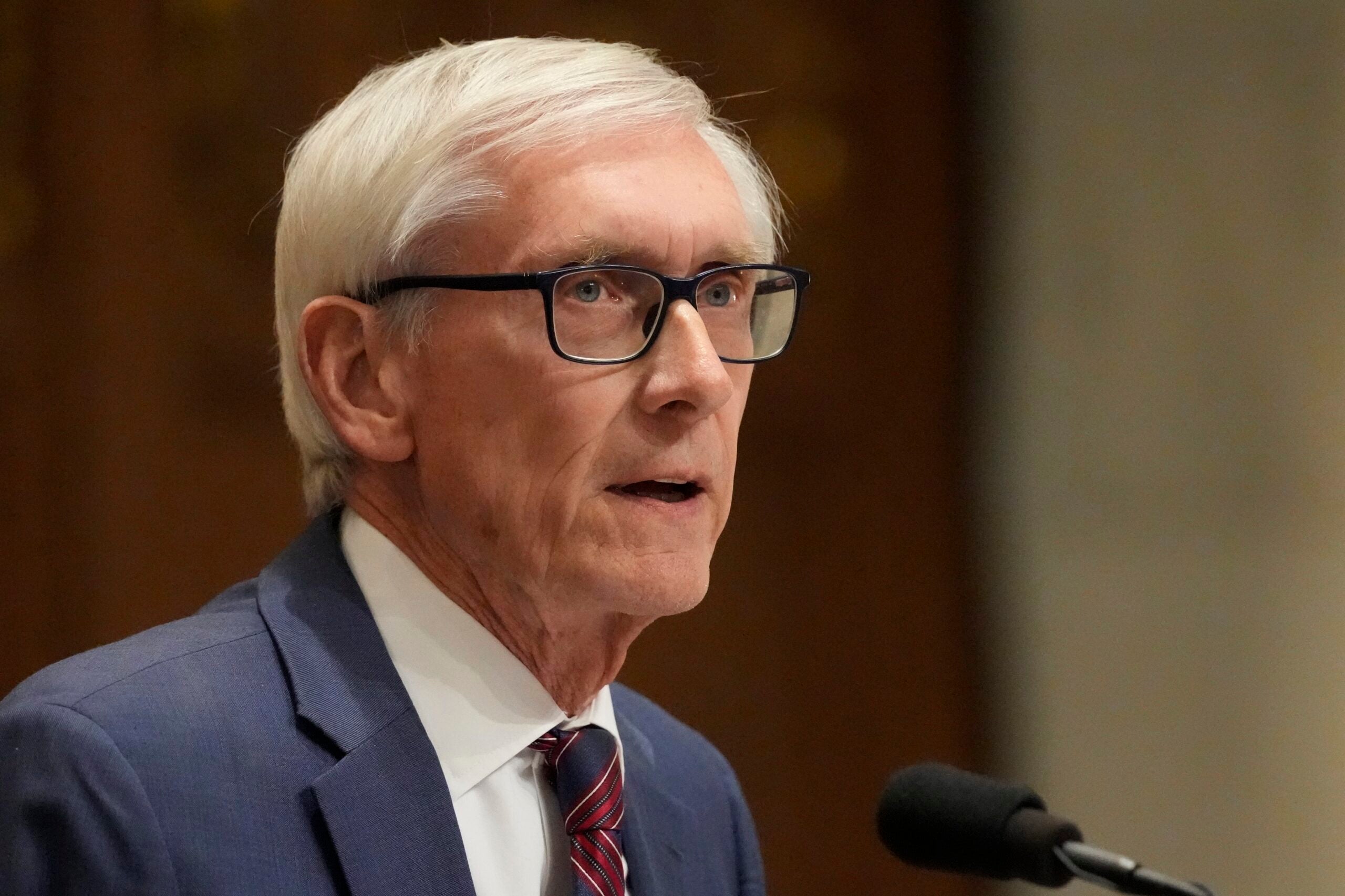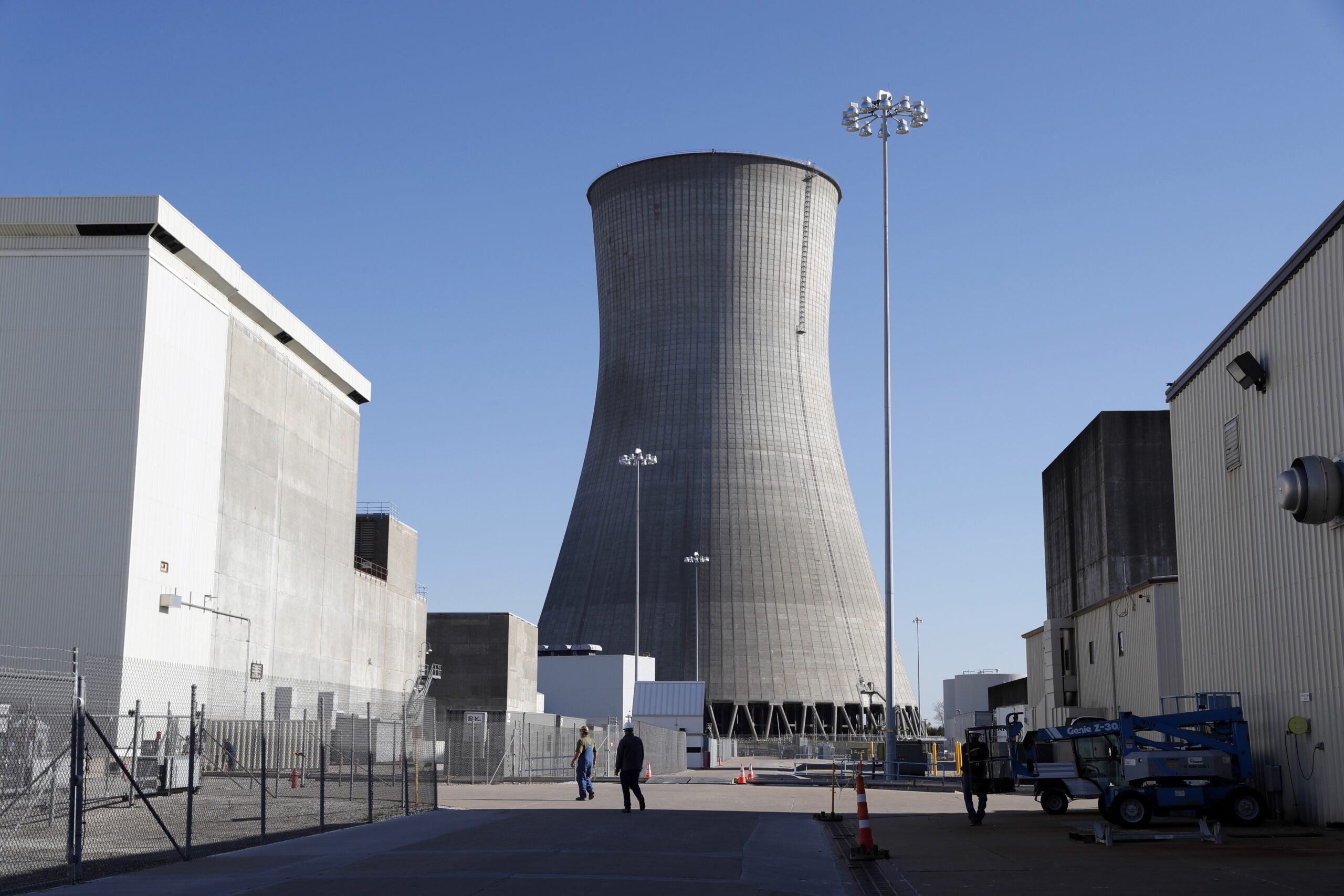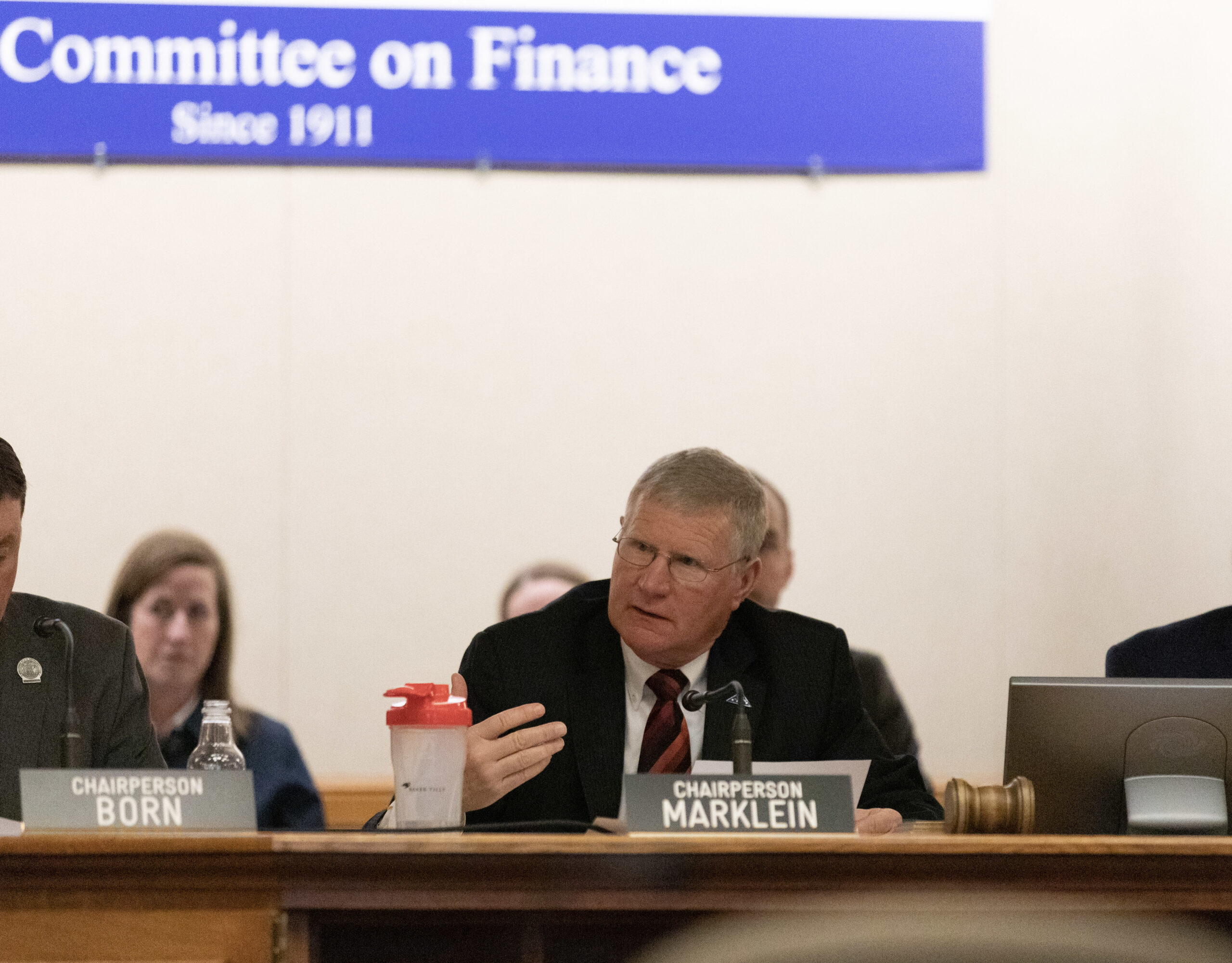Gov. Tony Evers on Monday proposed several changes to Wisconsin election laws, which his office says will improve voter access and election transparency.
The initiatives, which include the creation of a new office focused on election transparency, will be included in the 2023 budget proposal that Evers releases Wednesday evening.
The proposals also include automatic voter registration, changes to voter ID processes, allowing clerks to canvass absentee ballots before Election Day, and speeding up the reimbursement process for smaller communities during a special election or recount.
News with a little more humanity
WPR’s “Wisconsin Today” newsletter keeps you connected to the state you love without feeling overwhelmed. No paywall. No agenda. No corporate filter.
Evers also proposed a $2 million “Office of Election Transparency and Compliance” aimed at improving audits of voting equipment and voter rolls. Such a system would “ensure continued confidence in Wisconsin elections,” according to a press release from Evers’ office.
Debra Cronmiller, the executive director of League of Women Voters of Wisconsin, said in an interview with Wisconsin Public Radio that her group recently released a report endorsing some of the same ideas proposed by Evers.
“Many of the recommendations from the governor were really very voter-centric, which is wonderful to see,” Cronmiller said.
Wisconsin was one of several battleground states whose voter laws were called into question by conspiracy theorists who falsely claimed that the 2020 election was stolen from former President Donald Trump. While a state audit called for clearer laws for administering elections, repeated investigations unearthed no evidence of widespread fraud in the 2020 election, which a partial statewide recount found President Joe Biden won by nearly 21,000 votes.
Cronmiller said Wisconsin’s elections are already safe, accessible and accountable.
But, she added, “when people don’t know what happens in an election, they’re susceptible to believing anything they’re told.”
By welcoming voters into the process and helping them to understand the rules, the professionalism of municipal clerks and the voting equipment, voter confidence will increase, Cronmiller said.
“You come to the conclusion very quickly, that there’s … almost no opportunity for fraud in an election because of all the checks and balances,” she said. “In the absence of that knowledge, I do think people become more susceptible to … misinformation.”
Evers’ automatic voter registration proposal would transform any eligible Wisconsinite into a voter when they interact with a government agency.
That system is in place in 20 states and Washington, D.C., according to the Brennan Center for Justice.
Evers’ office also outlined some proposed changes to how quickly communities can be reimbursed for special elections and recounts.
These would help towns and villages recover from election costs that they did not necessarily budget for, Cronmiller said. Municipalities budget for regularly scheduled primaries and elections, but special elections or recounts can rack up unexpected costs.
“Elections don’t just happen. Elections have to be paid for,” said Cronmiller. “Ballots have to be printed. Advertising has to go into the newspaper, and … that can be a burden to the community.”
In recent years, any proposed change to Wisconsin voter laws has been a source of controversy. Assembly Speaker Robin Vos, R-Rochester, did not respond to a request for comment on the governor’s proposals. A spokesperson for Senate Majority Leader Devin LeMahieu, R-Oostburg, said he would not comment on budget proposals until the budget is formally introduced.
Evers proposed automatic voter registration as part of his 2021 budget. GOP lawmakers rejected that plan along with hundreds of other proposals from the governor.
Wisconsin Public Radio, © Copyright 2025, Board of Regents of the University of Wisconsin System and Wisconsin Educational Communications Board.







